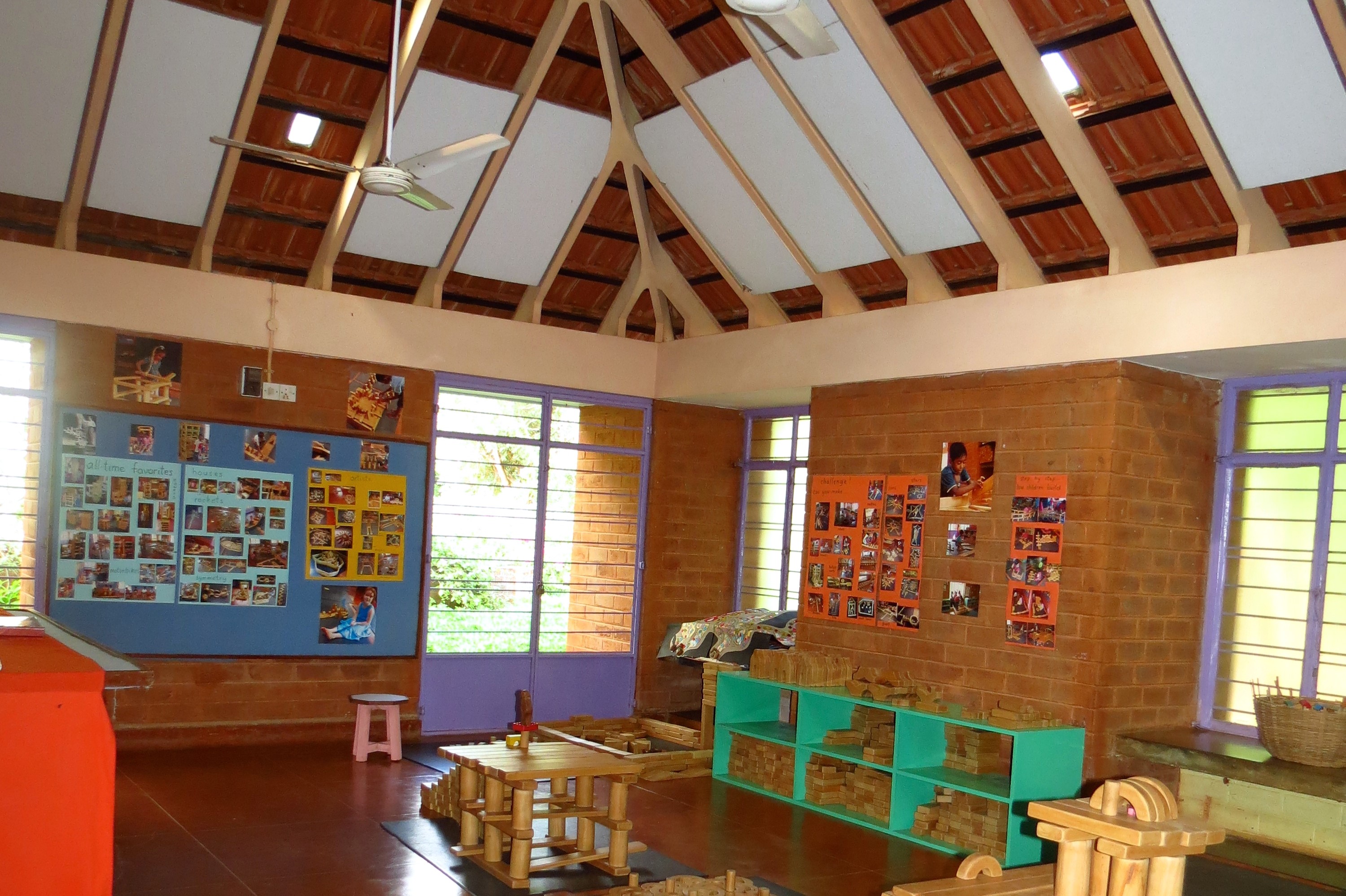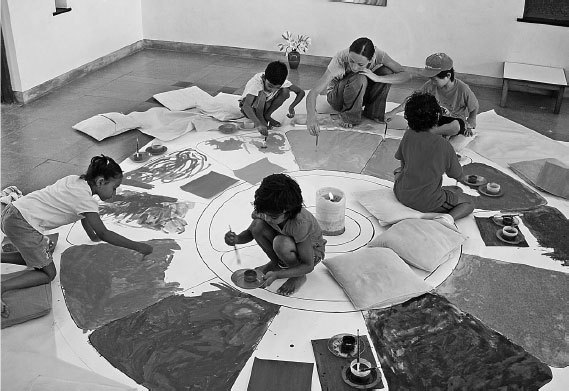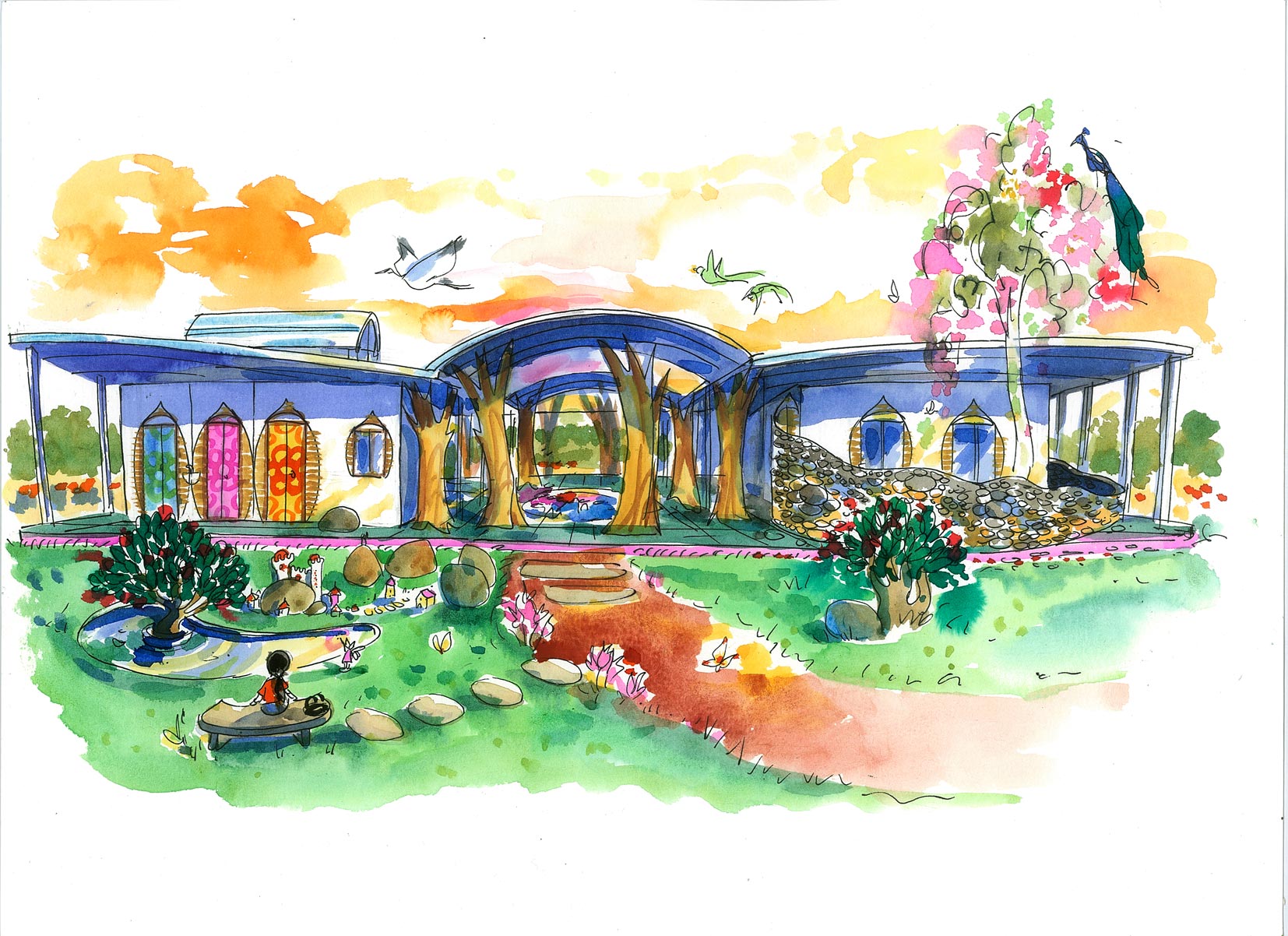Isai Ambalam School
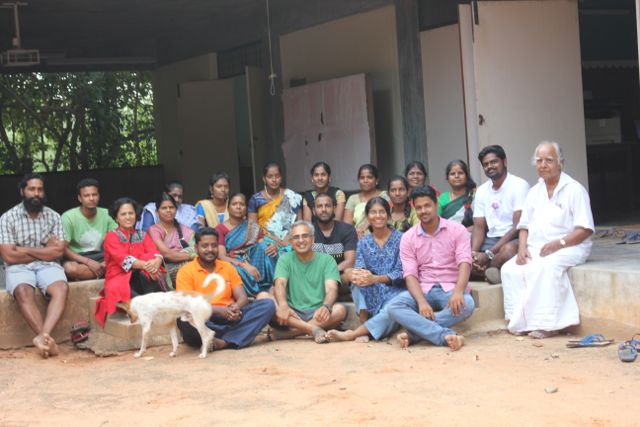
Located on the northern periphery of Auroville, Isaiambalam School (Tamil for ‘Hall of Harmony’ or Music) has pre-school, primary & middle-school sections for children from Kottakkarai and Alankuppam villages.
Isai Ambalam School is located on the northern periphery of Auroville. Most of its students come from nearby villages. Initially Isai Ambalam School was catering to the learning needs of young adults in the age group 8 to 15 years, who were dropouts from other learning establishments and came from the villages in the Auroville area. In course of time the school has evolved to comprise pre-school, primary and middle sections. Presently there are a little more than 100 students and 12 teachers in the school, and no dropouts. For the last 10 years the school has been successfully specializing in conducting experiments in education by adopting innovative, effective and comprehensive educational methods that make learning easier, faster, more joyous and holistic. In all these methods the three cardinal principles of education enunciated by Sri Aurobindo are very well incorporated, and all are based on joy, freedom, self-learning and ownership of learning. All of them create the most appropriate learning environment for the students, and all have further scope for improvisation and creativity.
The school makes provisions for students to receive education up to 10th standard level. All the students and teachers learn English. The school also serves as a training centre for teachers in its innovative educational methods.
Organisation of Learning in the School
A separate learning programme for each student is designed. Each programme contains activities for the student to acquire development in four aspects. They are:
- Essential knowledge content for one’s level;
- Special aptitude, talent and inclination;
- Psychological life skills;
- What further one wants to do.
Essential knowledge content at the preschool level includes 8 kinds of basic development, at the primary level 700 competencies in the Languages, Maths and Environmental Science Subjects and at the middle level subject lessons in English, Tamil, Math, Science and Social Science. Learning of English language is organized for students at each level in the school under 5 categories: Learning
- Learning vocabulary;
- Reading English texts;
- Understanding the spoken and written sentences;
- Using English grammar;
- Applying the language skills learnt so far.
Efforts are made to enable the students from the 4th standard onwards to assume total responsibility for implementing the programme; the teachers facilitate this process and provide appropriate assistance at the needed moment. The students as well as the teachers monitor the process of implementation every week and evaluate the learning outcome every month.
Pre-school Level Learning
Creative and play activities for all 8 kinds of basic development are daily given to the preschool children. These activities are woven around weekly or fortnightly themes like animal and bird habitats, festivals, living in different countries and similar ones.
Primary Level Learning
At the primary level, the school aims for the achievement of all the skills needed by the students for their self-directed learning. For this it is using the Rishi Valley Method or Activities-Based Learning Cards system which consists of a number of study cards containing learning activities to learn Tamil, English, mathematics and environmental science.
Middle-Level Learning
At the middle level, Thematic Project Works method, Savalae Samaali method based on Problem-Solving Approach, Bilingual Audio with Language Games method, Basic Sentence Structures method and Spiritual Methods are used for implementing the learning programme. A learning schedule is worked out for the contents that can be learnt by the students themselves with appropriate reinforcing activities and another for the contents that are to be learnt from the teacher. Every month a minimum of one Thematic Project Work or one Savalae Samaali challenge, and one Bilingual Audio story along with appropriate Language Games are designed and used to enhance and enliven the students’ learning.
Training in Using Alternative Educational Methods
Due to the intelligent and effective use of these educational methods in the school, it is gradually becoming a training-cum-resource base with reference to the removal of the difficulties in learning encountered by the first generation school-going children, and in particular in the removal of the difficulties that stand in the way of the rural students in acquiring language and maths skills and pursuing higher studies. Perceiving the multi-faceted character of these methods and their effectivness, visiting teachers and NGOs come to the school and get training in using these methods from its teachers.
Access to the New Consciousness
Further the school is gradually creating conducive conditions in its learning/teaching environment whereby its students and teachers can become aware of the New Consciousness or Spiritual Consciousness or Grace acting all over Auroville, and consciously access or invoke it for attaining their objectives in their school life. They are also encouraged to do this for the removal of difficulties or hurdles which arise in the context of their studies. Presently the school is making efforts for working out an ambitious experimental educational programme of designing and implementing a short term course for a practical learning of Sri Aurobindo’s Evolutionary Perspective of Human Life on Earth and the Process of Evolution. When this programme bears fruit innumerable ways will be open to access this New Consciousness.
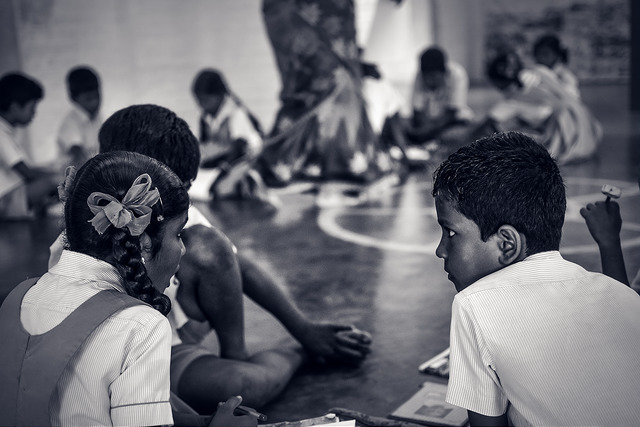
Thus a most appropriate learning environment, fitting with the ideals of Auroville, is created in Isai Ambalam School for providing a holistic education to its students, who acquire not only mental knowledge but also psychological life skills like problem-solving, creative and critical thinking, communication, self-directed learning skills and imbibe precious values such as Truth, Idealism, Perfection, Endless Progress.
Get in Touch
See Also
